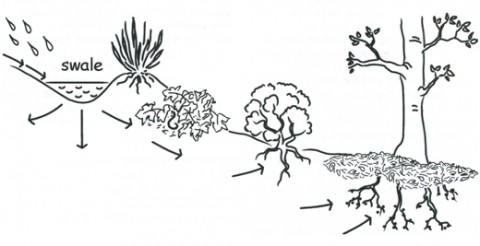Rev Dr Anne Bayley

Co-author of More and Better Food and of Time to Talk.
Anne Bayley is a priest in the Church of England and a former Professor of Surgery at University Teaching Hospital, Lusaka, Zambia. She is also co-author of two CALLED TO CARE workbooks: no. 3, Time to Talk, and no. 9, More and Better Food. She lives near Hereford, England, but travels frequently to run training workshops and attend meetings in east, central and southern Africa. Here she describes how the HIV epidemic has impacted on her professional life, and how she has responded to the huge challenges posed by the epidemic.
 Rev. Dr Anne Bayley
Rev. Dr Anne Bayley“The HIV epidemic impacted hugely on my professional life from 1983 onwards. While working at University Teaching Hospital in Lusaka, Zambia, I became more and more involved in caring for HIV-infected people. By 1985 I knew that AIDS would kill millions of people. Surgery became unimportant, as I began to understand how HIV impacted on families, countries and regions in Africa, and numbers of patients rose on an exponential curve.
“From about 1987 my personal life was affected too, as my house servants (or their families) were often ill – I didn’t escape AIDS when I went home from the hospital. In the hospital, surgery changed as numbers of patients with HIV-related infections and previously unknown pathologies escalated, wards were overcrowded and well-known conditions behaved more aggressively in HIV-infected persons. With every new patient we had to ask ourselves ‘Is this person HIV infected?’ before deciding on treatment.
“Sexual behaviour in marriage became important to me when I realised that traditional ‘initiation training’ for girls taught them methods of seduction which placed them at risk of HIV infection. In addition, neither husbands nor wives could discuss their sexual relationship because the only available vocabulary was the equivalent of ‘four letter words’ in English, and any spoken reference to sex was culturally impossible.
 Time to Talk illustration: Should men and women talk to each other before and after sex?
Time to Talk illustration: Should men and women talk to each other before and after sex?
“In these circumstances it seemed essential to ‘break the silence’ by organising training workshops for married couples, where they could talk with each other, and (hopefully) gain more enjoyment from mutually satisfying marital sex – while hoping that this would make it less necessary to seek satisfaction away from home! We were encouraged in this by the first responses to a tentative mention of sex in marriage at a workshop in 2001, for male clergy only. When we asked ‘who else needs to hear this?’ they answered at once ‘our wives!’ So Bishop James Tengatenga and I planned a workshop on ‘Family Life’ (an acceptable euphemism).
“In 2002 we organised another workshop but we felt very despondent when the opening speaker asked ‘Do we thank God for this good gift of sex in marriage?’ but everyone present looked at the floor and no-one dared to say either ‘yes’ or ‘no’. It seemed impossible to refer to both ‘sex’ and ‘God’ in the same sentence. Fortunately, our first exercise involved putting men and women in separate groups, to whom we said: ‘YOU are experts on men/women. What would you like women/men to know about men/ women and what men/women like in marriage?’
“This opened floodgates of information (and laughter), and we learned - to our astonishment - that neither gender had any idea that the opposite gender didn’t see sex from exactly the same viewpoint as themselves. Moreover, their priorities in marriage were also quite different. Men always wanted ‘good sex’ before anything else, but women hoped for ‘loving care’ before anything else. Neither gender knew that sexual arousal is different for men and women, but both were quick to learn.
 More and Better Food figure: High and low water tables
More and Better Food figure: High and low water tables
“In subsequent workshops in Zambia and Malawi we insisted that married couples shared the same room (and were not separated in single sex dormitories), to facilitate ‘homework’! We were much encouraged to see women ‘come alive’ as workshops progressed and to hear couples say later that they could now talk to each other about sex.
“Bishop James and I then wrote what became CALLED TO CARE workbook no.3, Time to Talk. Experience has since shown that the inhibitions and attitudes reflected in questions and observations in Zambia and Malawi seem to apply quite widely in other parts of sub-Saharan Africa. Commenting on the similarities between sexual attitudes and behaviour in East and West Africa, a Ghanaian user of Time to Talk once asked: ‘How do they know what happens in our marriages in Ghana?’”
After returning to the UK in 1992, Anne trained as an Anglican priest but continued to visit East and Southern Africa, where she became increasingly interested in the potential of permaculture for addressing the problem of food insecurity, especially in communities affected by the HIV epidemic. She recalls:
“Over a period of nearly 10 years, I had heard rural groups in Zambia and Malawi repeatedly name ‘hunger and poverty’ as the main problems they faced. So I asked them: ‘Do your gardens produce as much food now as they did 10 years ago?’ I always received the same answer – an explosive ‘NO!’ followed by ‘they’re exhausted.’
 More and Better Food illustration: Using swales, hedges, stones and plants to prevent run-off and soil erosion
More and Better Food illustration: Using swales, hedges, stones and plants to prevent run-off and soil erosion
“In 2008 I heard Mugove Nyika speak about permaculture for the first time, and I became convinced of its potential as a radical and practical way of addressing hunger. Then I heard several groups of HIV-infected people who were on antiretroviral therapy complaining – quite aggressively – about hunger. As a result, my limited acceptance of food aid as a ‘hand-out’ finally evaporated, and I saw growing more food as a genuinely feasible imperative.
“Slowly and tentatively, Mugove and I began planning the contents of More and Better Food, while he was still pre-occupied with preparing for an international permaculture conference in Lilongwe. Once the conference was over he was able to devote more time to working on the book.
“I did a tentative first test workshop using half the text with village people near Zomba, in Malawi. To my surprise, I found that everyone already knew that farming had to change – but they had no idea how, or where to start. Nearly twice as many people turned up for the workshop than I had budgeted for, and after two days all but two of them were still there, even though the planting season was just starting. Six months later, when I ran a workshop to test the second half of the text, 9 out of the12 people who attended had already changed something in their gardens, and were pleased with the results. We concluded that More and Better Food really ‘works’. The feedback we’ve received since the book was published also suggests that it is meeting a real need.”
Editor’s note: More than 38,000 copies of Time to Talk (in English, French, Portuguese, Maragoli and Swahili) have been distributed so far. More and Better Food, of which about 10,000 copies have been distributed, exists in English and Ndebele, with a Chewa edition currently in production. (July 2015)
To see more about Time to Talk please click here.
To see more about More and Better Food click here.




